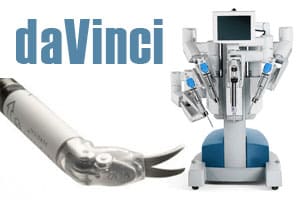
A new study has revealed that, based on insurance claim information, bladder cancer patients may not benefit from robotic surgery for their bladder removal procedures. In fact, according to Fierce Medical Device, patients experienced similar complication rates and hospital stay lengths regardless of if their bladders were removed by robot or the more traditional open […]
 A new study has revealed that, based on insurance claim information, bladder cancer patients may not benefit from robotic surgery for their bladder removal procedures.
A new study has revealed that, based on insurance claim information, bladder cancer patients may not benefit from robotic surgery for their bladder removal procedures.
In fact, according to Fierce Medical Device, patients experienced similar complication rates and hospital stay lengths regardless of if their bladders were removed by robot or the more traditional open procedure. The study involved 118 patients from Memorial Sloan Kettering Cancer Center from 2010 and 2013 and the participants were randomly chosen for open or robotic surgery. The Sloan Kettering researchers’ data was peer-reviewed, a New England Journal of Medicine (NEJM) spokeswoman wrote in an email, according to The Wall Street Journal.
Intuitive Surgical, the maker of the da Vinci robot system, indicated in an interview with The Journal, that the study results are “grossly misleading” as complications with these surgeries tends to take place when the bladder is being reconstructed, which only happens during open surgery and is not contingent on how the bladder is removed. The Journal noted that robotic removal of the bladder costs about $16,250, which is about 10 percent costlier than open surgery. The robot systems sell for approximately $2 million each.
This is not the only unfavorable study associated with robotic surgery, which has long been faulted for its high costs. For example, Johns Hopkins researchers recently concluded, in a different study, that robotic surgery-related complications are significantly underreported, which adds to the growing academic evidence that questions the value and safety of robotic surgery, wrote Fierce Medical Device. The U.S. food and Drug Administration (FDA) has also questioned surgeon training on the surgical robot and Intuitive Surgical recalled more than 1,300 systems in late 2013.
A 2013 study questioned the cost benefit of using the da Vinci for hysterectomy procedures when compared to laparoscopic procedures conducted by hand, noted The Wall Street Journal. Patient enrollment was ceased when early analysis revealed there was no benefit seen in robotic surgery over traditional, open surgery, wrote The Journal.
Personal injury lawsuits brought over the da Vinci have alleged significant internal injuries, including burns, tears, and other complications. Lawsuits have also alleged that some procedures have left patients with chronic pain or disability; some have alleged patient deaths have been tied to the robot systems. Lawsuits also blame Intuitive’s long-known aggressive marketing practices, design flaws intrinsic to the da Vinci, and poor physician training.
Last week, Intuitive Surgical announced that its revenues dropped 11.5 percent, with profits down 35 percent, year-over-year, in the second quarter. During the quarter, Intuitive shipped 96 systems. More than half of these, according to Fierce Medical Device, were the upgraded da Vinci Xi system, which received FDA clearance earlier in 2014.


